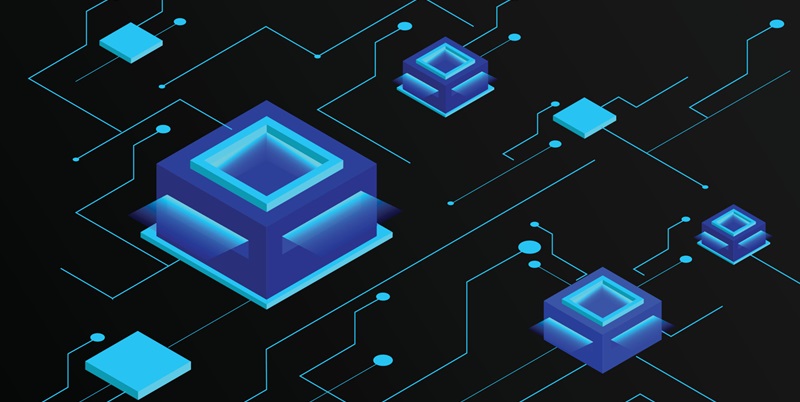Recently, Fuel Network unveiled its native token, FUEL, with the promise of transforming blockchain transactions by effectively eliminating gas fees. This innovative move marks a significant milestone in the blockchain infrastructure, furthering the goal of decentralization and making the technology more accessible to a broader range of users. With this launch, Fuel Network aims to revolutionize the current transaction processes and bring blockchain technology closer to mainstream adoption.
Empowering Users and Developers
A Comprehensive Token Distribution
In its ambitious vision for a decentralized ecosystem, Fuel Network issued 10 billion FUEL tokens, designed to distribute both control and value across its network. This extensive allocation of tokens empowers users and developers alike, offering them substantial stakes within this novel blockchain landscape. By enabling developers to lock their FUEL tokens, Fuel inaugurates application-specific sequencing, which allows these developers to determine transaction sequences on their platforms. This method not only provides a unique reward system for developers but also facilitates fee-less transactions for users, addressing one of the primary barriers to the adoption of Web3 technology.
The potential impact of this decentralized model should not be underestimated. Fuel’s innovative plan harnesses application-specific sequencing to create a more equitable system where transaction priorities are determined by token holders. Developers substantially benefit from this structure by having greater control over their application ecosystems, while users enjoy a more seamless and cost-effective transaction experience. This dual-faceted approach emphasizes Fuel Network’s commitment to decentralizing control and increasing user engagement, all the while enhancing the overall efficiency of blockchain operations.
Community Incentives and Partnerships
Fuel Network also places a strong emphasis on community engagement and incentive programs, with a substantial 20% of its total tokens allocated to reward participants and early adopters. Such a strategy ensures active involvement and encourages widespread participation within the network. To further augment this initiative, Fuel has partnered with prominent platforms like Legion, Impossible Finance, and Bitget. These partnerships are integral to driving adoption and ensuring dynamic interaction within the Fuel ecosystem.
The strategic alliances with these platforms serve multiple purposes, including bolstering community trust and promoting user activity. Through these partnerships, Fuel Network aims to provide participants with additional benefits and opportunities, thereby reinforcing the appeal of its incentivization program. Early adopters and active network participants stand to gain significant rewards, incentivizing them to remain engaged and contribute to the system’s robustness. This community-centric approach is set to play an essential role in the sustained growth and dynamism of the Fuel Network.
Enhancing Decentralization and Security
Broadening Validator Participation
Fuel Network’s strategy to evolve from a limited number of validators to a more diverse and expansive set of participants is integral to its vision of enhanced security and reduced censorship risks. By leveraging the Tendermint Proof-of-Stake (PoS) model, the network significantly improves transaction validation processes. This shift towards a broader network of validators ensures a secure environment and decentralizes operational control, thus mitigating the risks associated with centralization.
The model provides a secure framework where participants can validate transactions and earn rewards, maintaining the network’s integrity and incentivizing continued engagement. Empowering more participants to act as validators diversifies the network, reducing the susceptibility to breaches and ensuring a more robust defense mechanism against potential censorship. This broader validator base not only strengthens the security posture of the Fuel Network but also embodies its fundamental principle of decentralization.
Incentivizing Validator Engagement
Under the Tendermint PoS model, validators play a critical role in maintaining the network’s security and efficiency. As part of Fuel’s strategy, rewarding these validators becomes a priority, ensuring their ongoing participation and active contribution to the ecosystem’s integrity. By providing staking rewards, Fuel motivates validators to uphold their roles diligently, promoting a trustworthy and well-functioning network.
The incentivization model aligns the interests of validators with the network’s overall health, fostering an ecosystem where contributors are directly rewarded for their participation. This results in a more reliable and secure network, with validators committed to preserving its integrity. Moreover, the recurring rewards ensure a consistent and loyal validator base, further solidifying the Fuel Network’s decentralized structure. This well-integrated reward system underscores Fuel’s commitment to creating a sustainable and secure blockchain environment.
Conclusion
Fuel Network recently launched its native token, FUEL, promising to transform blockchain transactions by effectively eliminating gas fees. This groundbreaking development marks a significant milestone in the blockchain infrastructure, advancing the goal of decentralization and making the technology accessible to a broader range of users. By removing gas fees, Fuel Network aims to democratize the use of blockchain technology, enabling seamless and cost-effective transactions for both new and seasoned users.
In today’s digital age, blockchain technology is often hindered by high transaction costs that deter widespread use. Fuel Network’s introduction of FUEL seeks to address this issue, potentially paving the way for more mainstream adoption. The removal of gas fees not only reduces costs but also simplifies the user experience, making blockchain transactions as straightforward as traditional financial transactions.
Overall, Fuel Network’s innovative step in launching FUEL intends to revolutionize transaction processes and bring blockchain technology to the forefront, making it a more viable option for everyday use and facilitating the broader adoption of decentralization.

